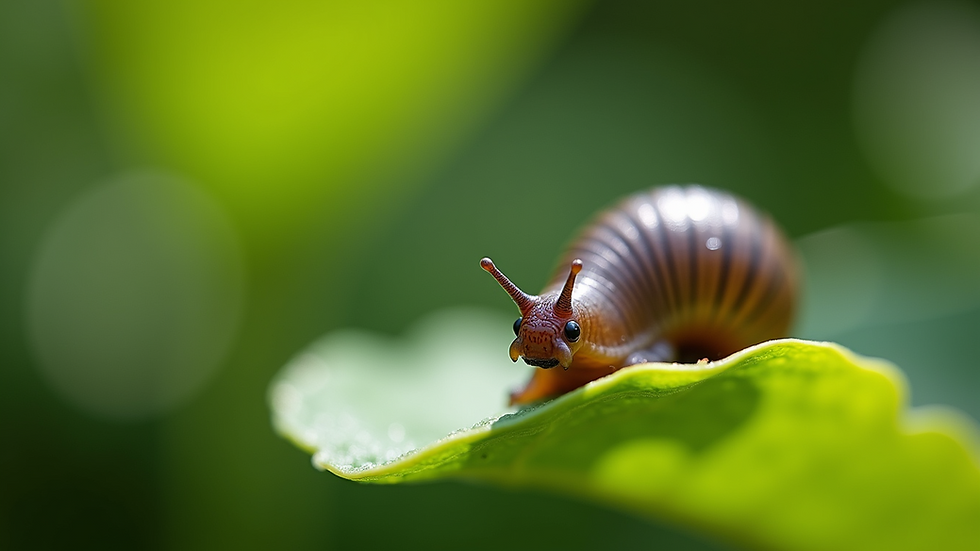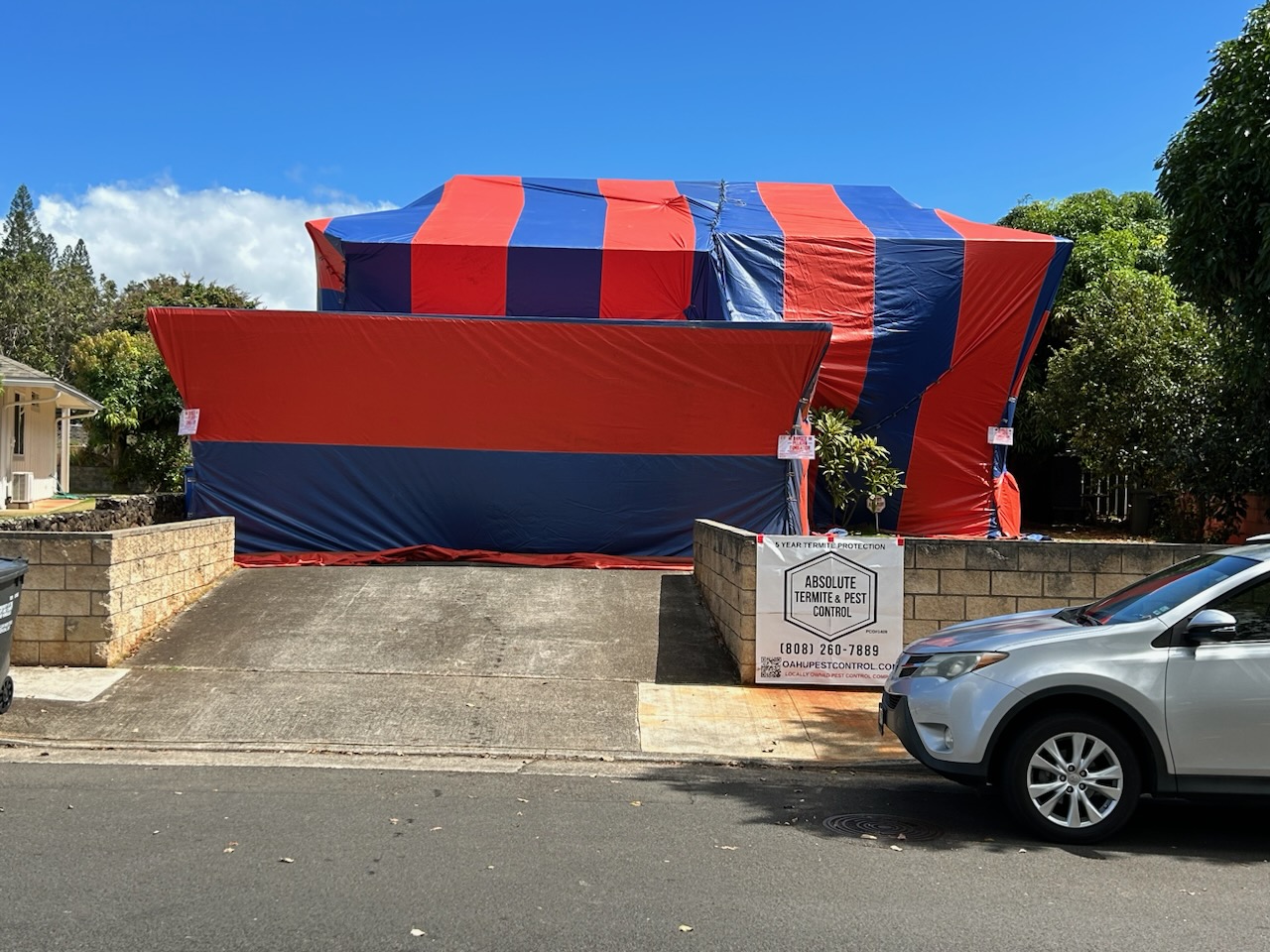Slugs in your yard? What now, and why?
- Absolute Pest Control Hawaii PCO#1409
- Aug 23
- 3 min read
Slugs can turn your garden into a battleground. Their slimy trails and relentless munching can cause serious damage, leaving you questioning their invasion. But why are these creatures in your yard? By understanding their habits and preferences, you can effectively manage them. In this post, we will explore the reasons slugs invade your space, the harm they can inflict, and practical ways to address the issue.
Why Are Slugs in Your Yard?
Slugs thrive in settings that offer both moisture and food. They particularly enjoy damp, shady spots where they can hide from birds and direct sunlight. If you have mulch, thick plants, or wet areas in your yard, you have created an inviting environment for them.
In gardens, slugs are especially attracted to tender greens and vegetables. They see favorites like lettuce, hostas, and strawberries as a buffet. Studies show that slugs can devour up to 20% of the foliage of young plants in just one week, which can severely stunt growth and reduce yields.
The Life Cycle of Slugs
Grasping the life cycle of slugs can help you manage their populations. Slugs can lay up to 50 eggs at a time. These eggs are often deposited in damp soil or beneath debris. In just two weeks, they hatch, leading to a boom in their numbers.
Young slugs are relentless feeders, capable of causing substantial damage in a brief period. Adult slugs can live up to six years, making it vital to tackle the problem timely to prevent recurring infestations.
Signs of a Slug Infestation
Recognizing a slug infestation early is essential. Here are the signs to look for:
Slimy Trails: These shiny, wet trails are one of the most noticeable indicators of slug activity.
Damaged Plants: Seek out irregular holes in leaves and signs of feeding. Slugs prefer young, soft plants, so check your garden regularly for signs of their munching.
Eggs: Small, round slug eggs, usually in clusters, thrive in damp conditions. Check areas like moist soil or hidden corners of your garden.
If you identify these signs, prompt action is necessary to safeguard your plants.
Natural Ways to Control Slugs
There are several environmentally friendly strategies to keep slugs at bay. Here are some effective methods:
Handpicking: This straightforward approach involves going out at night when slugs are most active. Grab them by hand and relocate them far away from your garden.
Barriers: Use materials like copper tape, crushed eggshells, or diatomaceous earth to create barriers. Slugs dislike crossing these rough surfaces.
Traps: Set up shallow dishes filled with beer or a soap-water mixture. Slugs find these solutions irresistible and often drown in them.
Encourage Natural Predators: Invite birds, frogs, and beneficial insects to your yard. These animals feast on slugs and can help you control their populations.
Chemical Control Options
If natural methods fall short, there are chemical options to consider, but use them wisely to minimize environmental impact.
Slug baits containing iron phosphate are popular because they are less harmful to pets and wildlife. Always apply according to the package instructions and place them in areas where slugs are frequent.
Preventing Future Infestations
After addressing the current slug issue, take steps to stop them from returning. Here are effective preventive measures:
Maintain Your Garden: Regularly remove debris and fallen leaves that can serve as shelters for slugs.
Water Wisely: Water early in the day to reduce nighttime moisture, which slugs thrive on.
Choose Resistant Plants: Incorporate plants such as lavender or rosemary that don’t attract slugs as much, reducing their chances of infestation.
Final Thoughts
Slugs can be a real headache, but understanding their habits and behaviors can empower you to manage them effectively. By employing natural control methods, maintaining a tidy garden, and being proactive, you can significantly reduce the impact of slugs. Remember, with practical strategies in place, you can take back your garden and enjoy its beauty without the slimy visitors.












Comments